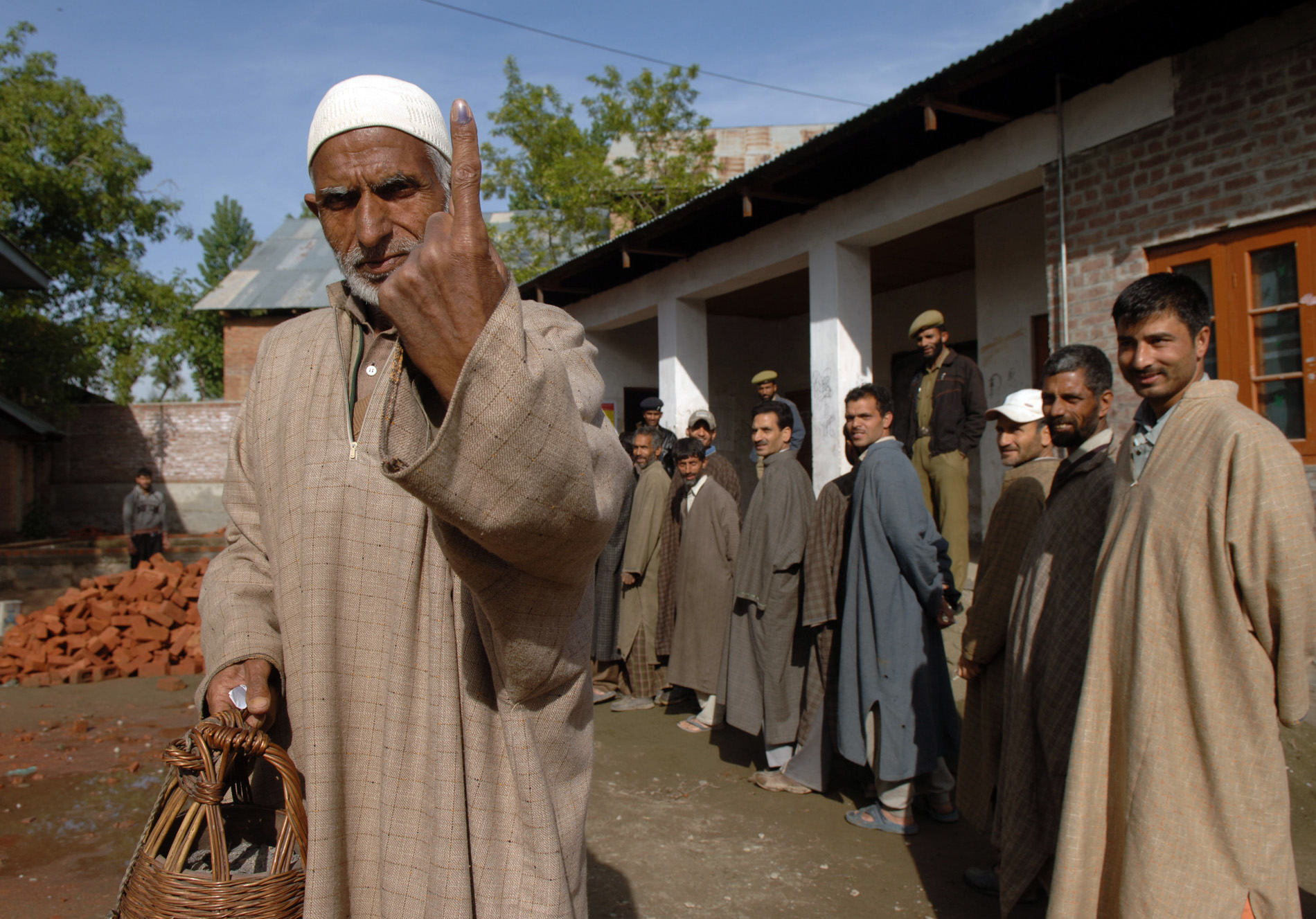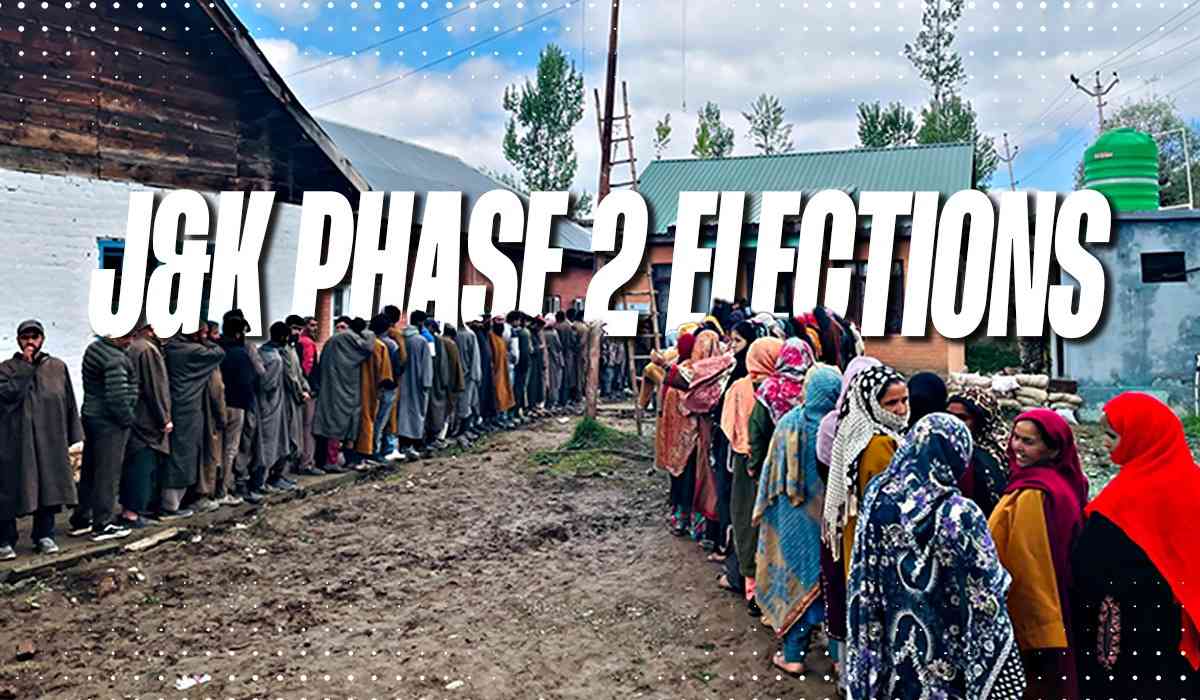More than 54 percent of eligible voters participated in the second phase of the Jammu and Kashmir Assembly elections on Wednesday, with 26 constituencies going to the polls.
According to the Election Commission (EC), voting commenced at 7 AM and concluded peacefully at 6 PM with no incidents of violence reported. By 7 PM, voter turnout reached 54.11 percent, surpassing the turnout from the 2024 Lok Sabha elections, the EC said in a statement.

First Assembly Elections Since Revocation of Special Status
This election holds special significance as it is the first assembly poll in Jammu and Kashmir since the revocation of its special status and statehood five years ago. Among the prominent candidates contesting in this phase are former Chief Minister Omar Abdullah, BJP J&K chief Ravinder Raina, and Congress J&K president Tariq Hamid Karra. Abdullah is contesting from both Ganderbal and Budgam, while Karra is running in Central Shalteng, Srinagar. Raina is seeking re-election from Nowshera in Rajouri, a seat he won in 2014.
Heightened Security Amid Recent Concerns
Due to recent security concerns in regions like Reasi, Rajouri, and Poonch — areas that have experienced multiple terror attacks over the past three years — security was tightened across the Union Territory to ensure safe polling. The Election Commission set up 3,502 polling stations, all equipped with webcasting capabilities, with 1,056 located in urban areas and 2,446 in rural parts of the state.
Earlier in the day, Chief Election Commissioner Rajiv Kumar referred to the elections in Jammu and Kashmir as “history in the making” during a media interaction in New Delhi. “The valleys and mountains that once faced fear and boycotts are now celebrating democracy, or ‘Jashn-e-Jamhuriyat’,” Kumar remarked.
Special Polling Arrangements for Kashmiri Migrants and Home-Voting
Special arrangements were made for Kashmiri migrants, with 19 polling stations set up in Jammu, one in Udhampur, and four in Delhi. The voting process for these voters was simplified by eliminating the need for the cumbersome Form-M, replacing it with self-certification.
In a first for Jammu and Kashmir, a home-voting facility was introduced, allowing voters aged over 85 and those with disabilities to cast their votes from home. The process was videographed to ensure transparency while maintaining ballot secrecy.
With inputs from agencies
Image Source: Multiple agencies
© Copyright 2024. All Rights Reserved Powered by Vygr Media.





















